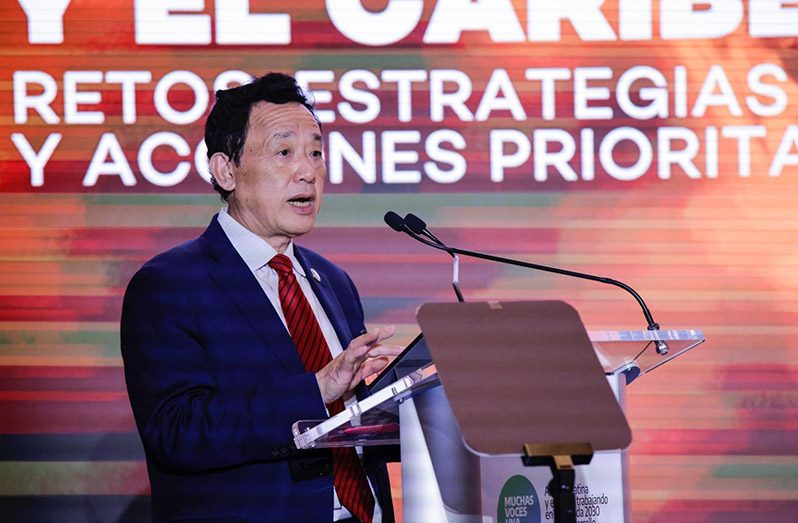LATIN America is an agricultural powerhouse yet has suffered a sharp rise in hunger in recent years, highlighting the need for robust actions to transform the region’s agrifood systems to be more efficient, more inclusive, more resilient and more sustainable, QU Dongyu, Director-General of the Food and Agriculture Organisation of the United Nations, said Tuesday.
“The increase in hunger, poverty and malnutrition is a paradox for a region that contributes significantly to the world’s food supply and produces enough food to feed its entire population,” the Director-General said at an event hosted by the CAF Development Bank of Latin America on the sidelines of the 77th Session of the UN General Assembly in New York.
No region of the world was hit harder by the COVID-19 pandemic than Latin America and the Caribbean, where economies shrunk twice as much as the global average, poverty rose to its highest level since 2006 as employment was ravaged, especially in the informal economy, and 65.6 million people suffered from hunger, with almost five times that number – or more than 40 per cent of the population – facing moderate or severe food insecurity, Qu said, adding that gender disparities have deteriorated.
The war in Ukraine, along with other conflicts, have exacerbated the blow from the pandemic and added further unpredictable challenges, especially for those countries in the region that are net importers of wheat, maize and vegetable oils, all of which have been subject to price shocks in the past year.
Even the region’s prowess as a net food exporter is at risk due to rising fertiliser costs, which could affect production and yields of food staples and trigger both a food availability and food affordability crisis, the Director-General added.
Priority areas for accelerated action
FAO’s Director-General pointed to four priority areas that need accelerated action: providing immediate support to the vulnerable through social protection systems, especially in rural areas and among vulnerable groups; boosting agricultural production by ensuring that family farmers have affordable access to seeds and fertilisers, working capital and technical assistance, and links to markets; facilitating trade in agricultural products and inputs to prevent further disruptions to food production; and investing in climate-resilient agriculture to address and reverse the effects of the climate crisis.
He assured those present that FAO was committed to work with members in the region and beyond to achieve “long-term inclusive and sustainable development”.
Qu’s opening remarks were given at a conference held by the CAF to identify challenges, strategies and urgent coordination actions needed to promote food security in Latin America and the Caribbean.
He spoke along with Sergio Díaz-Granados, Executive President of CAF-Development Bank of Latin America; World Food Programme Executive Director, David Beasley and Manuel Otero, Director-General of the Inter-American Institute for Cooperation on Agriculture (IICA).
Keynote speeches at the event were given by Guillermo Lasso, President of the Republic of Ecuador, and Irfaan Ali, President of Guyana.
The CAF Development Bank of Latin America, made up of 18 countries in the region as well as Spain, Portugal and 13 Latin American private banks, is in the process of a $7 billion capital increase to expand its activities in the promotion of sustainable development and regional integration in an array of sectors. (FAO)



.jpg)









